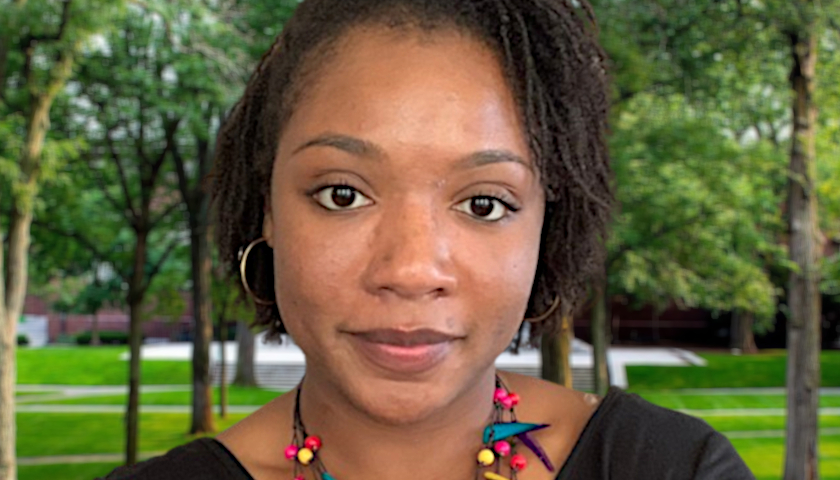by Sarah Wilder
Fourth black female Harvard employee in three months to face plagiarism accusations.
Colleagues are coming to the defense of a Harvard University sociologist who was recently accused of plagiarism, arguing the claims are bogus and part of a larger attack on black female scholars in higher education.
Award-winning Harvard University Professor Christina Cross is under fire over allegations of plagiarism in a complaint first reported in mid-March by conservative education activist Christopher Rufo in City Journal.
The complaint, provided to Rufo, “documents a pattern of misappropriation in Cross’s dissertation and one other academic paper.”
“The complaint begins with a dozen allegations of plagiarism related to the dissertation that range in severity from small bits of ‘duplicative language,’ which may not constitute an offense, to multiple passages heavily plagiarized from other sources without proper attribution,” he reported.
Harvard University’s media relations department and Professor Cross did not respond to The College Fix’s request for comment.
Harvard’s Department of Sociology released a statement last week defending Cross from “false allegations of plagiarism.”
“We find these bogus claims to be particularly troubling in the context of a series of attacks on Black women in academia with the clear subtext that they have no place in our universities,” the statement reads. “Dr. Cross is a brilliant scholar who we ranked at the very top of our pool of applicants when we hired her, from a field of hundreds, on the strength of her scholarship. We are fortunate to have her on our faculty, and she has our full and unalloyed support.”
The complaint alleges in part that Cross copied a passage from a paper on “Family Instability in Childhood and Criminal Offending During the Transition Into Adulthood” written by Stacey Bosick and Paula Fomby without citations.
Two more times, Cross allegedly plagiarized the work of scholars who served on her dissertation committee, meaning she would be more than likely familiar with their academic writings.
“At each wave, the household head or the spouse or cohabiting partner of the head reports on family household composition, employment, earned and unearned income, assets, debt, educational attainment, expenditures, housing characteristics, and health and health care in the household,” a passage from Bosick and Fomby’s paper reads. “In 2015 (the most recent wave available), the study collected information on almost 25,000 individuals in approximately 9,000 households.”
Cross’s paper reads almost identical, with minor alterations:
“At each wave, the household head or the spouse or cohabiting partner of the head reports on household composition, and household members’ employment, income, educational attainment, and health status. In 2015, the study collected information on nearly 25,000 individuals in approximately 9,000 households.”
Cross also appears to have lifted almost verbatim a passage from a 2014 paper co-authored by Natasha Pilkauskas titled “Examining the Antecedents of U.S. Nonmarital Fatherhood,” altering only six words, Rufo reported, noting Pilkauskas served on Cross’s dissertation committee.
The new complaint comes months after former Harvard President Claudine Gay resigned from her position following multiple accusations of plagiarism. Gay blamed “racial animus” for the allegations. She has maintained her position as a professor, earning almost $900,000 annually.
Harvard Chief Diversity and Inclusion Officer Sherri Ann Charleston also faced accusations in January of plagiarism. She allegedly copied large portions of text in her 2009 dissertation at the University of Michigan and took credit for her husband’s research in a peer-reviewed journal article that copied much of a 2012 study published by her husband.
A fourth black female employee, Harvard Extension School administrator Shirley Greene, was accused of dozens of instances of plagiarism in her 2008 University of Michigan dissertation, the Harvard Crimson reported in mid-February, which noted that Charleston and Greene do not hold academic appointments.
As for Cross, several scholars she allegedly plagiarized have also defended her from the allegations in a March 21 statement, writing they are “deeply concerned” about this “false allegation.”
“It’s not simply that Dr. Cross’s writings do not constitute plagiarism,” they wrote. “Rather, her description of a large public dataset in this standardized way is simply good research practice – helping to ensure replicability and transparency. Indeed, this is a common practice among our user communities, and it should remain so to ensure high quality scientific research.”
And the Journal of Marriage and Family, of which Cross serves on the editorial board, defended Cross against what they termed “contemptible attacks aimed at undermining and threatening scholars focused on race and racism, in particular Black women academics.”
– – –
Sarah Wilder is a contributor at The College Fix.
Photo “Christina Cross” by Christina J. Cross; Photo “Harvard Campus” by Harvard University.








